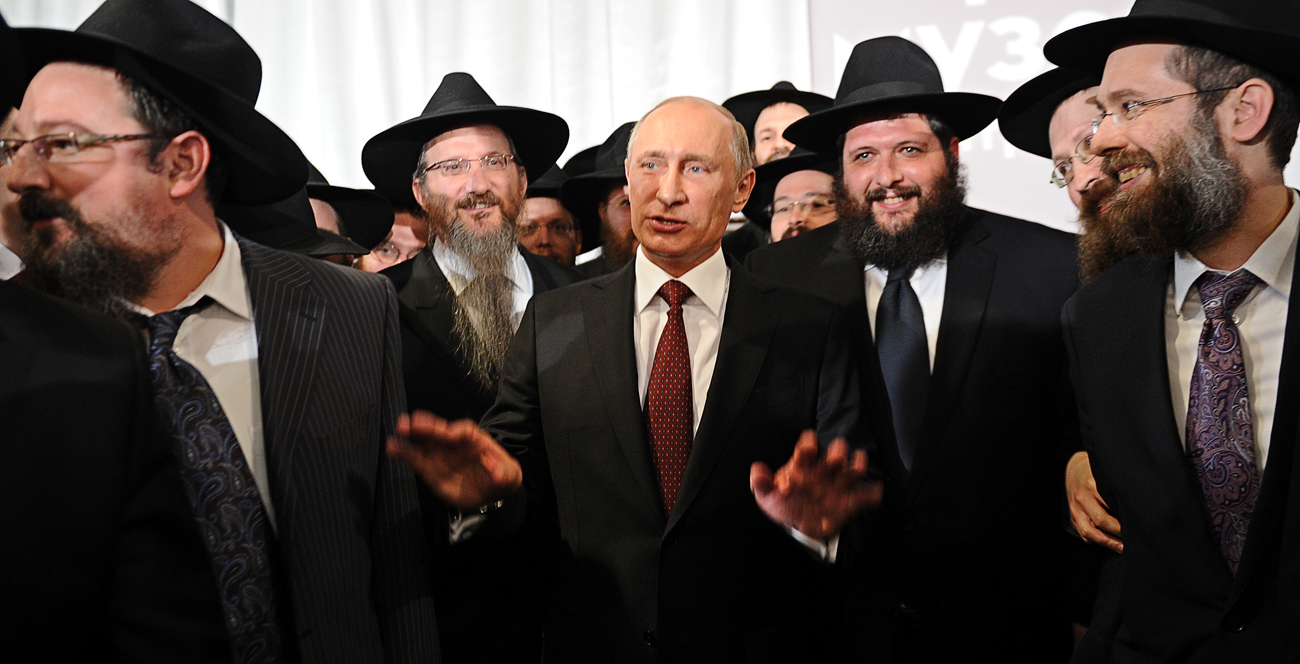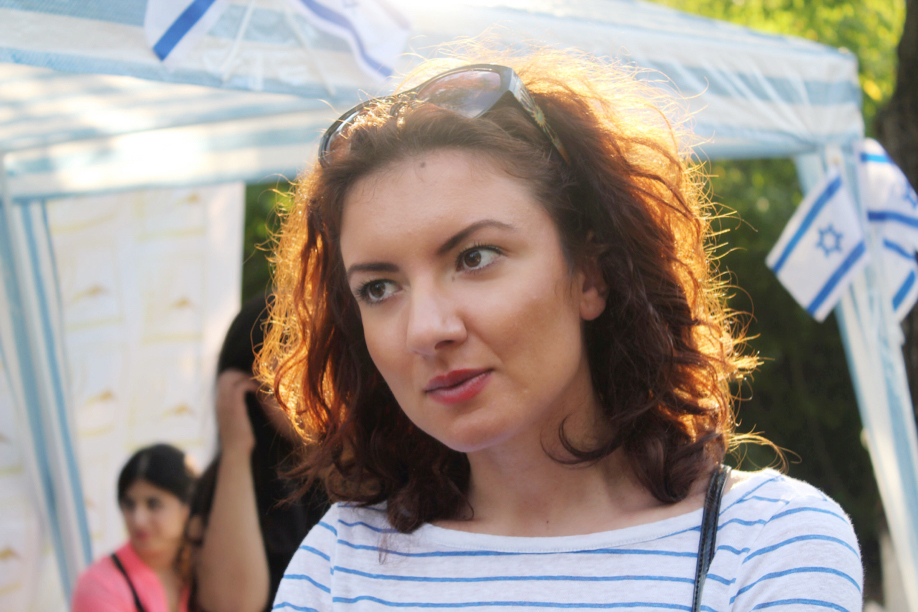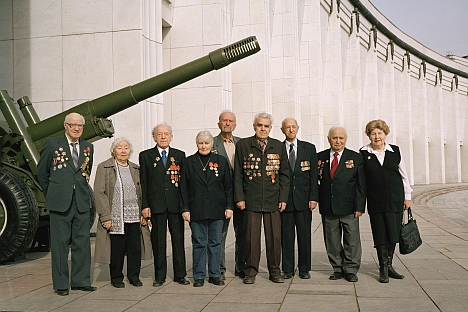Experts say anti-Semitism is in decline in Russia, but are they right?

Russia's President Vladimir Putin speaks at a ceremony marking the handover of the Schneerson library at the Jewish Museum and Tolerance Center in Moscow, on June 13, 2013.
AFP/East NewsDiscrimination against Jews is no longer part of state ideology in modern Russia and is relatively rare in everyday life, according to participants of an international conference on anti-Semitism held in Moscow recently on Nov. 1-2.
Experts gathered in the Russian capital for the forum, titled Protect the Future, argued that there has been a decline in anti-Semitism in Russia and other former Soviet countries in recent years.
This has happened for a variety of reasons, but is primarily due to the fact that Russia’s modern political elite has no anti-Semitic agenda. In addition, people from the Caucasian republics and migrants from Central Asia have become perceived as a major irritant by Russians, while the number of Jews in the country has dramatically decreased since the fall of the Iron Curtain.
However, experts believe that anti-Semitism did not die completely, but rather fell into a "sleeping" state and can be activated if nationalist ideology rises in Russian society.
Why is it on the wane?
The Secretary-General of the Eurasian Jewish Congress in Moscow, Mikhail Chlenov, believes that the significant reduction in the level of anti-Semitism in Russia has several causes.
"First, the president in Russia is not an anti-Semite," he said. "Second, xenophobes have switched their attention from Jews to other ethnic groups – people from the Caucasus, the former Soviet Central-Asian republics, and so on."
This view is shared by Lev Gudkov, director of the independent Russian sociological research organization Levada Center. "In the public sphere, anti-Semitism has become indecent," he said. "This is perceived as a manifestation of lack of education and ignorance."
He also cites a reduction in the number of Jews in Russia among the reasons for the decline. "Two-thirds of Russians have never had any relation to Jews," said Gudkov.
Indeed, the number of Jews in Russia has decreased by almost four times over the past 27 years, with most having emigrated to Israel and the West. While 570,000 Jews lived in Russia in 1989, their number had decreased to 275,000 by 2002. According to the most recent census, conducted in 2010, Russia is home to 156,000 Jews.
The Soviet past
In contrast to the present day, anti-Semitism was unofficially part of state policy in the Soviet era. Although Jews had periodically been discriminated against during the Stalin era, the severing of diplomatic relations between the USSR and Israel in 1967 ushered in a 20-year period in which Jews were barred from state service and senior positions in other prestigious spheres of public life. They were unable to work for the Ministry of Internal Affairs, the KGB, the Foreign Ministry and the Communist Party, and were also blocked from studying at the relevant educational institutes.
The internal passports and other identity documents of Soviet citizens indicated ethnicity. Being listed as a Jew could put an end to the most successful career, complicate university admission, etc. Therefore, most Soviet citizens born into mixed marriages preferred to indicate the ethnicity of their non-Jewish parent.
State-sponsored anti-Semitism could not but rub off on ordinary citizens. So-called "domestic anti-Semitism" was widespread in society – a negative attitude toward the Jews, Jewish jokes and stereotypes that appeared out of nowhere.
"I have not personally encountered anti-Semitism," 21-year-old Yana Vinokur, a Jew living in Russia, told RBTH. "But my father suffered a lot in his time," she recalled. "He could not go to military school and find any job at all. And all this was because he had ‘Jew’ written in the column ‘Ethnicity' in his passport."
‘Dormant phase’
However, the conference's participants agreed that anti-Semitism still exists in Russia. "Open forms of anti-Semitism have weakened, but anti-Semitism has not disappeared," Gudkov said. "The entire structure of anti-Semitist sentiments has persisted. Anti-Semitism has simply entered a ‘dormant phase.'"
Monika-Yevgeniya Kuznetsova, 26, an ethnic Russian Jew, told RBTH that she often has to deal with anti-Semitism, which, for example, is expressed in people's reactions to Hebrew textbooks.
"Once I was in the metro, studying Hebrew," Monika-Yevgeniya recalled. "A guy spoke to me, seeking to get acquainted. After learning that I study Hebrew, he changed his expression and said angrily: 'Our grandfathers died because of those nasty Jews, how can you learn their language?'"
"If we talk about domestic anti-Semitism and attitudes in society in general, there is no decline there, the situation has not changed," Alexander Kargin, director of the office of the Likud World Organisation (Likud Olami) in Russia, told RBTH. "It's just a matter of degrees. Against the background of Europe, where anti-Semitic moods are growing, the situation in Russia is undoubtedly better."
Subscribe to get the hand picked best stories every week
All rights reserved by Rossiyskaya Gazeta.
Subscribe
to our newsletter!
Get the week's best stories straight to your inbox

